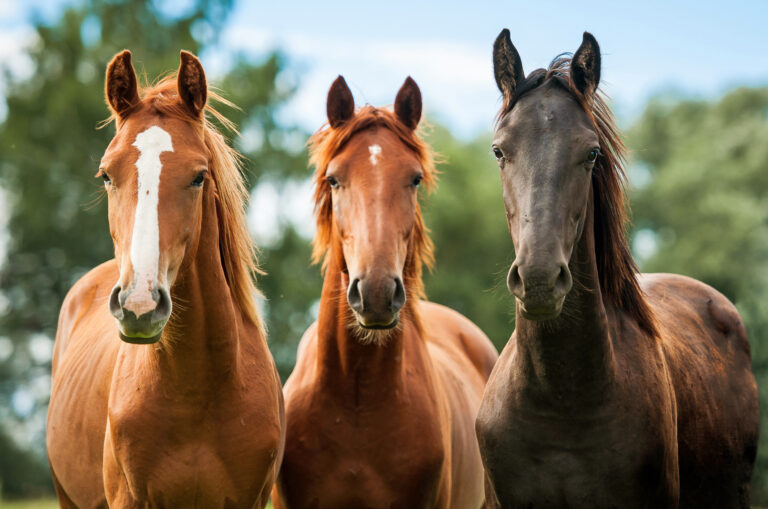
Researchers looking into causes of right dorsal colitis might have stumbled upon an interesting and similar condition in people: cystic fibrosis. Anje Bauck, DVM, PhD, DACVS, of the University of Florida addressed this topic at the 2022 AAEP Convention in San Antonio, Texas.
Role of NSAIDs
NSAIDs play a key role in horses developing right dorsal colitis. The mucosa loses its protective mechanisms through decreased prostaglandin production with NSAID administration. Some horses are more sensitive to the adverse effects of NSAIDs, while other horses might be affected by an overdose that creates colon disease. Bauck describes the variable clinical signs of right dorsal colitis: Recurrent low-grade colic, chronic diarrhea, low protein levels, and progressive weight loss. The colon develops edema, inflammation and thickening, with eventual colon stenosis, luminal impaction or even rupture in chronic cases.
Why the Right Dorsal Colon?
To explore why it is the right dorsal colon that is affected, Bauck explains that the secretion of bicarbonate between the ventral and dorsal colon serves as a buffer to the large amounts of volatile fatty acids (VFAs) produced in the large colon. Bicarbonate helps to maintain homeostasis along the mucosal surface of the large intestines. In people with cystic fibrosis, an abnormal protein—cystic fibrosis transmembrane conductance regulator—causes deficiencies in chloride and bicarbonate secretion.
Under normal conditions, the right dorsal colon has robust bicarbonate secretion, but that is significantly decreased with NSAID use. Cystic fibrosis in humans and lab animals is caused by a failure of anion secretion in the lungs, pancreas, and intestines leading to the development of similar intestinal lesions—ulceration, stenosis, impaction, and potential rupture—to right dorsal colitis in horses.
Protection for the Intestinal Mucosa
The study described by Bauck suggests that oral sodium bicarbonate might help to protect the intestinal mucosa by increasing the pH and decreasing lactic acid in the large intestines.









